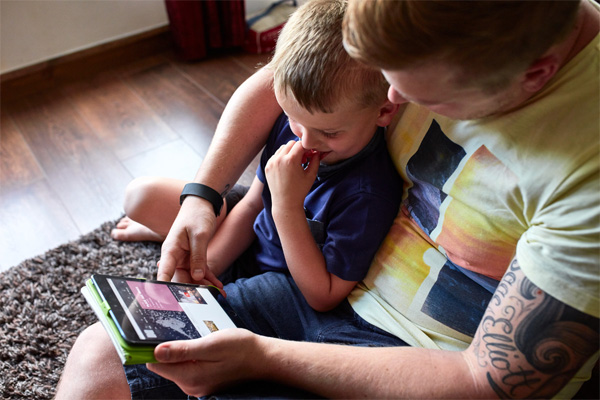Online Safety
What are the issues?
The internet – on the whole is an inspiring and positive place.
The internet is an amazing resource which enables children and young people to connect, communicate and be creative in a number of different ways, on a range of devices.
However, the internet is always changing, and being able to keep up to date with your children’s use of technology can be a challenge.
You may sometimes feel that your children have better technical skills than you do, however children and young people still need advice and protection when it comes to managing their lives online.
Issues that your child may encounter on the internet will vary depending on their age and online activities.
Organisations and websites offering further information and support for online safety:
Play Like Share –
Play Like Share follows the adventures of Sam, Ellie and Alfie as they form a band and enter their school’s Battle of the Bands contest, taking on the mean but ‘cool’ Popcorn Wizards as they go. The three friends learn that while the internet can help, they need to use it wisely and safely.
The aim of the films is to help 8-10 year olds learn how to stay safe online. In particular, the films teach them to spot the early signs of manipulative, pressurising and threatening behaviour by people they might meet online, and develops their confidence to respond safely and get help.
Be Share Aware –
Keep your child safe online
We tell our children it’s good to share – but online it’s different. In fact sometimes sharing online can be dangerous. Being Share Aware will help keep your child safe online.
Watch and share a short film and take a look at some straightforward advice that will untangle the web, and give parents confidence in talking to their children about how to stay safe online.

Positive Environment: The school’s environment fosters respect and support among pupils and staff. Pupils are encouraged to develop good manners and social skills, contributing to a positive school culture.

Overall Effectiveness: The school was rated ‘Good’ in all categories, including quality of education, behaviour and attitudes, personal development, leadership and management, and early years provision.

Quality of Education: Pupils receive strong support in learning to read quickly and achieving well. The curriculum is well-planned and effective, particularly in the early years and mathematics. Teachers and teaching assistants are well-trained and provide clear explanations and encouragement.

Behaviour and Attitudes: Pupils exhibit respectful relationships with adults and move around the school sensibly. They are confident in seeking help from staff if needed, and bullying is rare. Pupils listen attentively to teachers and engage in class discussions.

Safeguarding: The school has effective safeguarding measures in place. Staff are well-informed and confident in identifying and addressing potential risks to pupils. Pupils are knowledgeable about staying safe, particularly online.

Leadership and Ambition: School leaders are noted for their ambition and effective work in improving the school. Their efforts have resulted in a good quality of education for the pupils.

Support for SEND: Pupils with special educational needs and/or disabilities (SEND) are quickly identified and well-supported, achieving good outcomes as a result.

Personal Development: Pupils are encouraged to be independent from an early age and take care in presenting their work. They enjoy participating in various clubs and activities, including sporting competitions and educational visits.



